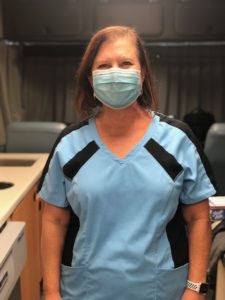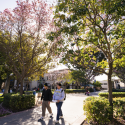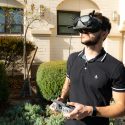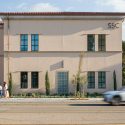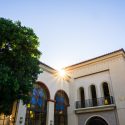Fullerton College Nurse Volunteered for COVID-19 Vaccine Trial
This past fall, Fullerton College Nurse Practitioner Theresa Ullrich picked up her 85-year-old father-in-law from his assisted living care facility to transport him to a COVID-19 testing appointment. She wore her N-95 mask, an extra surgical mask, and took the precautions recommended by the CDC to help fight the spread of COVID-19, even though she had a pretty good reason to believe she was not a carrier and had protection from the coronavirus.
In late August, Ullrich was one of 40,000 individuals to participate in Pfizer-BioNTech’s COVID-19 vaccine trial. As in any blind clinical trial, she did not know if she received a placebo or the vaccine. She learned on Dec. 15 that she was in fact in the group who received the vaccine and is now sharing her experience in hopes it will help others feel confident about receiving the vaccine.
“I know there are a lot of people who are still on the fence about the vaccine,” she said. “Let’s get the word out that this vaccine is safe.”
As of Jan. 2, the Centers for Disease Control and Prevention reported that 4,225,756 people received the first dose of COVID-19 vaccines in the United States, and another 13 million doses have been distributed to health care agencies. These numbers include the Moderna and Pfizer/BioNTech vaccines. The state of California anticipates having enough supplies to vaccinate most Californians in all 58 counties by the summer, according to the state’s COVID-19 website.
Ullrich volunteered for the clinical trial believing that a successful vaccine “is the only way to move forward.” Ullrich, who has been a healthcare professional for more than 35 years, and a nurse practitioner at Fullerton College since 2005, said she didn’t have any reservations about joining the study, and has a sense of peace knowing she made the right decision.
“I knew there was a 50/50 percent chance I wouldn’t get the vaccine, but I wanted to try anyway,” she said. Despite not knowing if she received a placebo or the actual vaccine until Dec. 15, she felt confident she’d received the actual vaccine after the first dose was administered in August.
“My arm felt a little sore at the injection site after the first dose, and I felt a few mild side effects after the second dose, so I felt 99 percent sure I had gotten the actual vaccine,” she said, adding that the process was quite invasive. Her initial visit took about four hours to complete and involved a thorough health screening plus additional time for the vaccine to warm before it was administered. The vaccine requires a low storage temperature of negative 70 Celsius.
Ullrich’s other side effects included a slight fever and chills after the second dose, which was administered 21 days after the first, but she said the mild symptoms lasted less than a day. “I woke up with chills that night and a temperature of about 99, so I took an Advil, and went back to sleep. I felt fine by about mid-day the next day.”
Participants of the trial who received the placebo were being offered the actual vaccine in this first round of vaccinations. Ullrich’s brother-in-law, who is a physician, was one of them. “He was a little bummed out that he didn’t get the actual vaccine, but now he’s able to get it early as well.”
As for Ullrich’s father-in-law, he did test positive for COVID-19 and had to be hospitalized for a few days before returning to his care facility shortly after. She had peace of mind transporting him to and from the hospital, knowing she was likely safe from the virus.
Ullrich will continue to be monitored in the vaccine trial for 24 months and has evaluation appointments every six months. “I’m glad to have been a part of something so monumental,” she said.
Learn more about COVID-19 vaccines by visiting COVID19.ca.gov/vaccines/.


